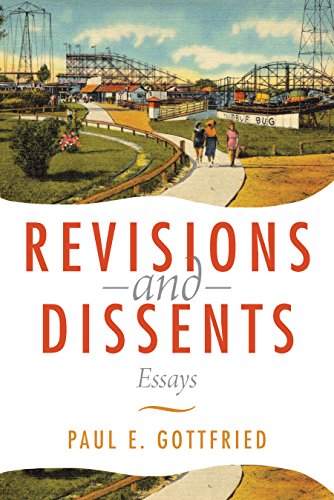Mark Bray is in his early thirties and the recipient of a Ph.D. in history from Rutgers in 2016. He is also rapidly becoming antifa’s chief ideologue. Among his works describing or advocating for the often violent demonstrators are Antifa: The Anti-Fascist Handbook and Translating Anarchy: The Anarchism of Occupy Wall Street.
Bray has yet to find a major commercial press for his tracts and, so far as I can tell, remains a lowly lecturer at Dartmouth College. But he has presented his case for antifa’s protest activities and the disruptive forms they have taken in, among other venues, Foreign Policy, The Washington Post, and Boston Review. Bray was also invited to voice his views at the Politics and Prose bookstore in Washington, D.C., an honor usually reserved for intellectual and political celebrities. It was after watching Bray’s Politics and Prose address and the remarks it elicited from the mostly “antifascist” audience that my editor at Northern Illinois University Press arrived at the idea that I should write a book on antifa’s worldview.
 Encounters: My Life wi...
Best Price: $5.20
Buy New $5.60
(as of 08:10 UTC - Details)
After listening to the YouTube talk and then ordering Bray’s Handbook, it occurred to me that there was nothing particularly interesting about what I was encountering. Despite its obvious incompatibility with the dominant political culture, the alt-right seems to have rallied philosophically deeper thinkers than the slogan-chanting adolescents who swarm around Bray. Alt-right publications regularly mention European rightist intellectuals like Alexander Dugin, Friedrich Nietzsche, and Julius Evola, and however tendentiously those sources are used, their interpreters do give the impression of having read something serious. By contrast, all that I took away from Bray and his groupies were their attacks on “neo-Nazis” and “fascists,” plus their habit of using both epithets to refer to Republicans and others who disagree with them.
Encounters: My Life wi...
Best Price: $5.20
Buy New $5.60
(as of 08:10 UTC - Details)
After listening to the YouTube talk and then ordering Bray’s Handbook, it occurred to me that there was nothing particularly interesting about what I was encountering. Despite its obvious incompatibility with the dominant political culture, the alt-right seems to have rallied philosophically deeper thinkers than the slogan-chanting adolescents who swarm around Bray. Alt-right publications regularly mention European rightist intellectuals like Alexander Dugin, Friedrich Nietzsche, and Julius Evola, and however tendentiously those sources are used, their interpreters do give the impression of having read something serious. By contrast, all that I took away from Bray and his groupies were their attacks on “neo-Nazis” and “fascists,” plus their habit of using both epithets to refer to Republicans and others who disagree with them.
It’s not that Bray never tries to relate his incipient movement to earlier traditions of thought and activism. He brings up the communists and anarchists of the early 20th century and tries to extend a line of continuity between them and antifa. He ritualistically denounces corporate capitalism, a stand he may be using as the primary link between himself and an older Left. Bray is also fond of comparing present-day America under President Donald Trump to the European civil wars of the 1930s, between the “Left” and “fascism.” When Richard Cohen of The Southern Poverty Law Center objected that he was encouraging violence on Meet the Press, Bray responded:
 Revisions and Dissents...
Best Price: $29.00
Buy New $29.00
(as of 03:55 UTC - Details)
Revisions and Dissents...
Best Price: $29.00
Buy New $29.00
(as of 03:55 UTC - Details)
During the ’30s and ’40s, there was no public opinion to being leveraged by non-violent resistance. If you get fascist to be powerful enough in government, they’re simply not gonna listen to the kind of public opinion that non-violence can generate. That’s the argument for resistance to Nazis…. [I]t’s a privileged position to be able to say that you never have to defend yourself from these kinds of monsters.
To an intellectual historian like myself, the most striking part of Bray’s advocacy is that his politics has zilch to do with the troubled decade that he highlights. Pace Bray, Trump is neither Hitler nor Mussolini. Moreover, Bray’s Left has nothing in common with the Left that existed in interwar Europe. His field and passion are gender studies and “fighting racism.” These were hardly the major interests of anarchists and Marxists in the 1930s. Back then the Left was serious about a socio-economic revolution and showed no noticeable interest in identity politics or LGBT self-expression. It may even be a bit of a stretch to relate antifa activism to the protests in the 1960s that I personally witnessed. The demonstrators at that time opposed a prolonged war in Vietnam into which they might be personally dragged; others protested segregation, which really existed in some parts of the country. What similarly deep cause is driving Bray and his allies? I can’t seem to find one other than seizing power or simply letting off steam.




